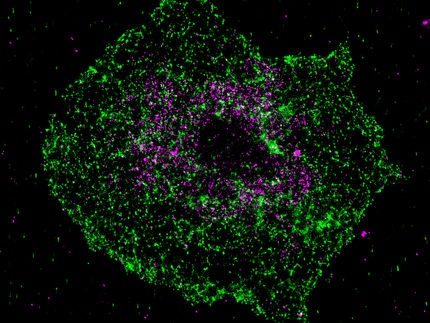Low levels of natural antibodies behind stroke
Advertisement
The chances of suffering a stroke are linked to the presence of a certain type of antibody in the immune system, a new study from Karolinska Institutet shows. The researchers hope to be able to develop a vaccine that can mobilise the body’s own defence against arteriosclerosis and stroke.
The research group, which was led by Professor Johan Frostegård, has previously demonstrated that high levels of a certain type of antibody (anti-PC) in the immune defence are linked to a reduced risk of arteriosclerosis, a common cause of thrombosis and myocardial infarction.
In the present study, the researchers focused exclusively on stroke – a blood clot in the brain – and compared 227 individuals who had suffered stroke over a 13-year period with 445 sex and age-matched controls. After controlling for other risk factors (age, sex, smoking habits, cholesterol levels, diabetes, BMI and blood pressure), they were able to show that low levels (below 30 per cent of average) of PC antibodies correlated with a higher risk of stroke, which in women meant an almost three-fold increase.
The researchers have now advanced the hypothesis that low levels of natural PC antibodies, which can be a condition of a poor immune system – contribute to the development of arteriosclerosis and its consequences, which include stroke.
“We’re now examining the possibility of developing new immunological treatments for arteriosclerosis and stroke, either in the form of a vaccine to stimulate the immune defence or immunisation through the injection of antibodies,” says Professor Frostegård.
Arteriosclerosis is formed by the accumulation of plaque on the walls of blood vessels, which can rupture and form a blood clot. The researchers believe that the PC antibodies react to a substance called phosphorylcholine (PC), which is a component of a class of fat molecules (phospholipids) that go to make up the plaque.
The study was carried out under the EU’s CVDIMMUNE consortium, which is led by Johan Frostegård at Karolinska Institutet. The first author, Roland Fiskesund, is a doctoral student in the project, which is based at the Karolinska Institutet’s Department of Medicine in Huddinge, Stockholm.
Original publication: Roland Fiskesund et al.; “Low levels of antibodies against phosphorylcholine predict development of stroke in a population based study from Northern Sweden”; STROKE, 11 Feb 2010
Other news from the department science
Most read news
More news from our other portals
See the theme worlds for related content
Topic world Antibodies
Antibodies are specialized molecules of our immune system that can specifically recognize and neutralize pathogens or foreign substances. Antibody research in biotech and pharma has recognized this natural defense potential and is working intensively to make it therapeutically useful. From monoclonal antibodies used against cancer or autoimmune diseases to antibody-drug conjugates that specifically transport drugs to disease cells - the possibilities are enormous

Topic world Antibodies
Antibodies are specialized molecules of our immune system that can specifically recognize and neutralize pathogens or foreign substances. Antibody research in biotech and pharma has recognized this natural defense potential and is working intensively to make it therapeutically useful. From monoclonal antibodies used against cancer or autoimmune diseases to antibody-drug conjugates that specifically transport drugs to disease cells - the possibilities are enormous

























































